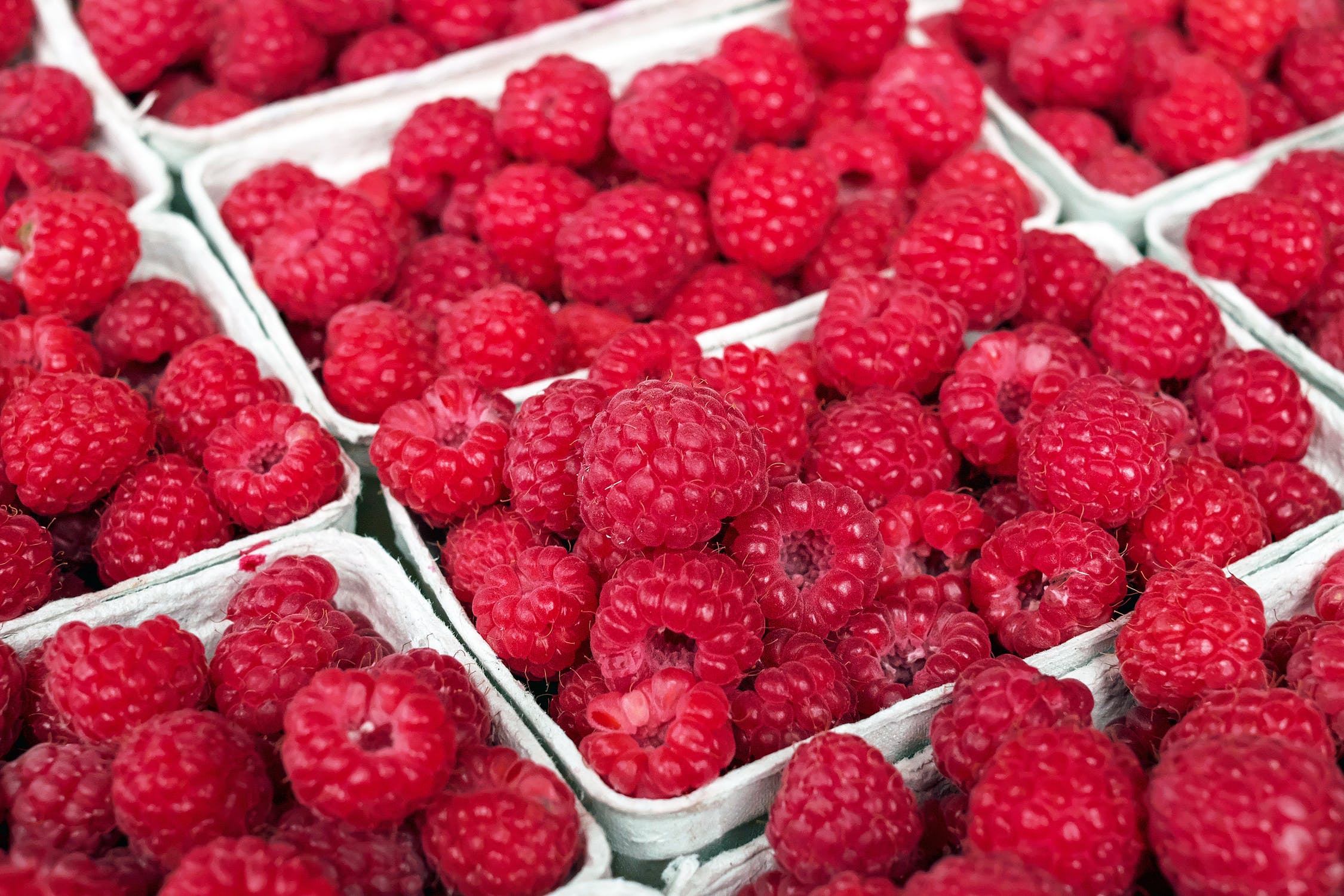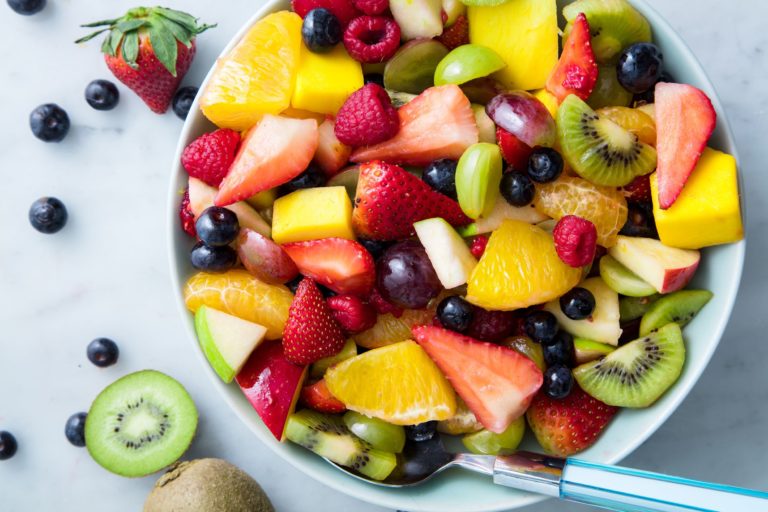
Raspberries are enjoyable all year long, whether they’re fresh or frozen. These gorgeous gems aren’t just delicious and versatile; they have an impressive nutritional profile that makes them one of the healthiest choices in the produce aisle. Here are 6 health benefits of raspberries:
Raspberries have lots of nutrients
One cup of raspberries provides over 50% of the minimum daily target for vitamin C, which supports immunity and skin health and helps produce collagen. Raspberries also contain manganese and vitamin K, which both play a role in bone health. And they supply smaller amounts of vitamin E, B vitamins, magnesium, copper, iron, and potassium.
They’re low in sugar
Raspberries are also one of the lowest-sugar fruits, at just 5 grams per cup fresh, compared to about 20 grams in one medium apple. This makes them a great option for anyone with a sweet tooth who wants to minimize their overall sugar intake.
They’re rich in anti-aging antioxidants
Raspberries are antioxidant powerhouses. These health-protective compounds have been tied to lower rates of heart disease, cancer, diabetes, and obesity. Raspberry antioxidants also help reduce inflammation, a known trigger of premature aging. The natural protective substances in raspberries are also linked to better DNA repair and blocking enzymes that trigger arthritis pain.
They can protect you from cancer
Raspberry antioxidants and anti-inflammatory compounds are associated with cancer protection by reducing the reproduction of cancer cells. However, research also shows that the phytonutrients in raspberries, such as ellagitannins, may actually help kill cancer cells by signaling apoptosis, or programmed cell death.
Raspberries are high in fiber
A cup of raspberries packs an impressive 8 grams of dietary fiber, a third of the daily minimum goal. This high-fiber content also reduces raspberries’ net carb content to about 7 grams per cup (since our bodies aren’t capable of digesting and absorbing fiber). That fiber also contributes to fullness, blunts blood sugar by slowing digestion, and supports good digestive health. Raspberry fiber also helps beneficial gut bacteria flourish. The latter are linked to stronger immunity and a more positive mood.
They may help prevent diabetes
A new study from the Illinois Institute of Technology randomly assigned 32 adults between the ages of 20 and 60 to three breakfast meals. Each meal was similar in calories and macronutrients, but they had different portion sizes of frozen red raspberries: One meal contained no raspberries, the second included one cup, and the third provided two cups.
Researchers found that for those who were at risk of diabetes, eating more raspberries reduced the amount of insulin needed to manage blood sugar levels. In fact, blood sugar was lower in those who downed two cups of red raspberries compared to those who ate none.

























